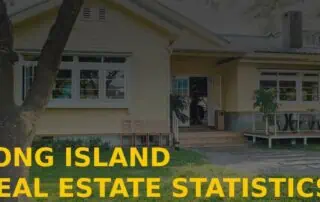Selling A House to an Investor in Long Island
Are you looking to sell your house in Long Island and wondering how to do it quickly and efficiently? Perhaps you’ve heard about home investors, but you’re unsure what they do and how they can help you. In this article, we’ll explore the world of home investors, what they do, and how you can sell your house to them for a hassle-free experience.
What Is a Home Investor?
A home investor, often referred to as a real estate investor or cash buyer, is an individual or company specializing in purchasing properties intending to renovate, rent, or resell them for profit. These investors are typically well-funded and can offer homeowners a faster and more convenient way to sell their homes than traditional methods.
What Do They Do?
Home investors primarily focus on buying properties quickly and without the usual hassles associated with traditional home sales. Here’s a closer look at what they do:
- Fast cash offers: Home investors offer sellers the advantage of receiving cash offers for their properties, often within days. This particularly appeals to homeowners who need to sell their homes quickly, whether due to financial constraints, relocation, or other personal circumstances.
- As-is purchases: Investors are willing to buy houses in their current condition, meaning you don’t need to invest time or money in costly repairs or renovations before selling.
- Streamlined process: Home investors simplify the selling process, eliminating the need for real estate agents, inspections, appraisals, and lengthy negotiations. This facilitates the transaction and can lead to a faster closing.
- No contingencies: Investors typically don’t require financing contingencies, which can often cause delays and uncertainty in traditional real estate transactions.
How Can I Sell To Them?
Selling your house to a home investor in Long Island is a straightforward process that can be completed in a few simple steps:
- Contact the investor: Begin by reaching out to a reputable home investor or company. Handsome Homebuyer, for example, is a well-known home-buying company in Long Island with a strong track record of satisfied customers.
- Property assessment: The investor will schedule a visit to your home to determine its condition and value. This step allows them to determine a fair cash offer for your property.
- Receive a cash offer: After the assessment, you will quickly receive a fair cash offer for your property. This offer is typically presented within a short time frame, often within 24 hours.
- Accept the offer: If you’re satisfied with the offer, you can accept it, and the investor will initiate the closing process. You don’t need to make any repairs or invest further in your property.
- Close the deal: The closing process with a home investor is usually faster than traditional home sales. You can expect to have your cash in hand within a few weeks or even sooner.
Sell It Fast To Handsome Homebuyer
Handsome Homebuyer is a trusted name in the Long Island real estate market. With a long history of satisfied customers and a commitment to making the home-selling process as smooth as possible, they are an excellent choice for owners looking to sell their properties quickly.
Here are the advantages of selling your home to an investor like Handsome Homebuyer:
- Speedy sales: According to Zillow, the average time it takes to sell a house on the traditional market can range from 55 to 70 days. In contrast, selling to a cash buyer can often result in a closing within weeks.
- Avoiding repairs: A study by Houzz found that the average cost of home renovations in 2021 was approximately $18,000. When you sell to an investor, you can avoid these costly renovations and sell your home as-is.
- Reduced stress: According to a survey conducted by Which? Mortgage Advisers, selling a home can be one of life’s most stressful events. Home investors aim to minimize this stress by simplifying the process and providing quick solutions.
Read Our Reviews
If you’re asking, “How do I sell my house to an investor?” consider working with a reputable home investor like Handsome Homebuyer. To discover how much your home is worth and receive a free instant cash offer, visit Handsome Homebuyer’s testimonials page.
The Bottom Line
Selling your house to a home investor in Long Island can be a smart and efficient choice, especially if you’re looking for a speedy and hassle-free sale of a house, commercial property or land. With our excellent reputation and commitment to customer satisfaction, Handsome Homebuyer is a reliable option for homeowners seeking a quick and convenient way to sell their properties or to sell your house fast Long Island NY.













